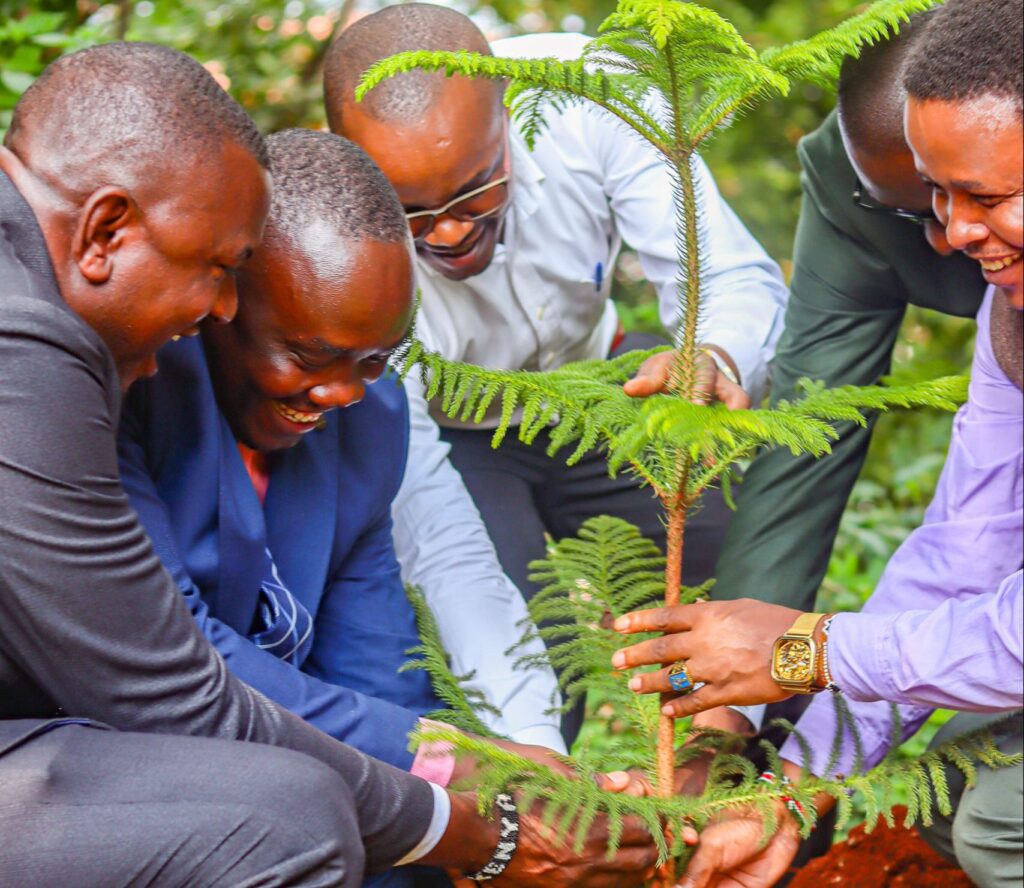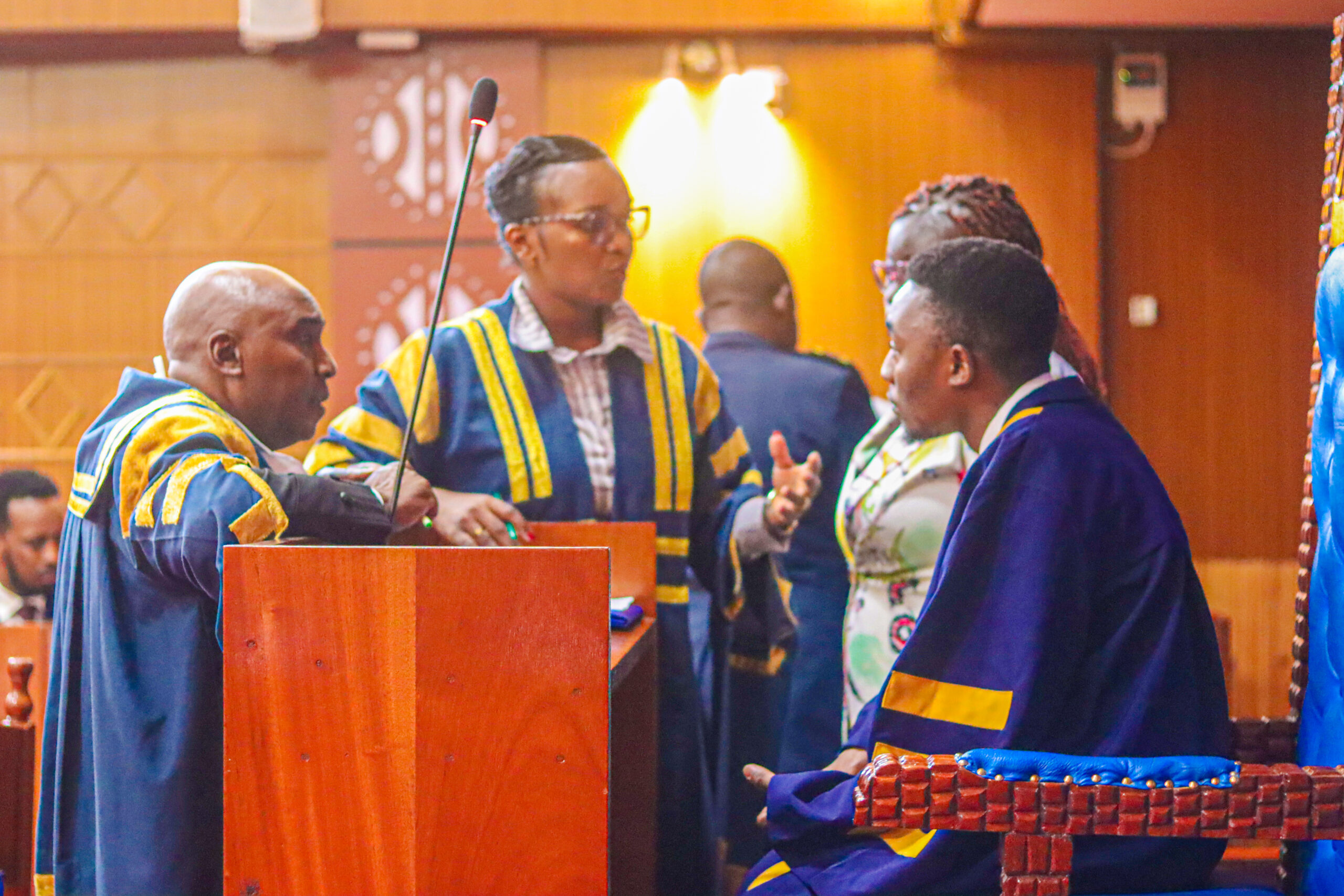Youthquake: Shaping Kenya’s Democracy from the Grassroots Up

Young people are at the forefront of changing the future of Kenya. The moment for the new generation of democratic leaders in Kenya is now with increased interest and awareness. The KYMCA youth exemplify this through Youth Bunge’s, where they learn parliamentary processes, receive mentorship from the Members of County Assembly, and draft proposals addressing youth issues in the community. They believe that the experience and networks formed will better position them to eventually take the mantle and become the next leaders representing their counties.
Simultaneously, young people in Kenya feel disengaged from politics, and the issue of inclusivity prevails, leaving young people with limited opportunities. We asked questions about these trends and determined how to best amplify the voices of Kenya’s youth for inclusive democracy.
What are the barriers for Kenyan youth to participate in politics?
Youth participation is gaining prominence both on a global scale and within the Kenyan political sphere. However, progress still needs to be made, requiring further steps and initiatives for youth participation to be meaningful and inclusive. Kenyan politics are dominated by patronage structures and retrogressive cultural norms and practices with stereotypes against youth and, particularly, young women. Young people in Kenya often find themselves in low socio-economic positions and usually need more knowledge and resources to engage effectively in politics. Moreover, the high costs of politics and elections and the prevalence of negotiated and transactional political practices present significant barriers to their meaningful involvement in the political arena. The absence of a distinct ideology within political parties and the civic space that could offer direction and establish fundamental values regarding the significance and framework of youth engagement and inclusion is another significant challenge to youth participation.

Inclusivity is necessary, even within youth
Young people comprise a very diverse group with different identities within them. Although some barriers are experienced in Kenya, this experience is not the same for all Kenyan youth. For example, young women, young people from rural areas and/or north-eastern regions, and people with disabilities experience barriers very differently. Young people with disabilities are more socio-economically disadvantaged, young women face traditional gender roles and biases hindering them from entering politics, and young people or youth-led organizations from rural areas are even more disconnected with limited opportunities to participate in politics. Power dynamics are prevalent even within politically engaged youth and student groups; only some are taken aboard. Many other young people are excluded from decision-making and are increasingly disappointed by the practice of democracy in Kenya. Youth political participation should also be inclusive and be sensitive for diverse youth.
Building bridges between young people and politics
Barriers to participation for young people are also entangled within the political system. Working with young people in Kenya consequently requires working with political actors. Creating a connection between young people and politics is essential.
Building bridges and connections is essential to ensuring everyone is included in Kenya. For this reason, NIMD Keya has partnered with Kenya Young Members of County Assemblies (KYMCA) through the Power of Dialogue programme to strengthen youth in local politics. KYMCA is an organization of young people in politics for young people in politics at the country assembly level. They support young candidates in counties, even in regions that are usually marginalized.
Opportunities to engage young Kenyans
Young people in Kenya take a different approach to expressing themselves politically, communicate more online, and approach work life more flexibly.
After decades of exclusion, Kenyan youth are increasingly expressing their satisfaction online. Young people’s participation in politics goes beyond elected office, as it concerns actively participating in their communities and public life. At the same time, Kenyan youth are reluctant to participate in formal spaces of Kenyan politics.
Although some may view this as a concern, we see it as an opportunity. It means young people are interested in political affairs, they have platforms to express themselves, and it provides an opportunity to engage with them. We just need to adjust to their needs and ways of communication.
Amplifying youth voices needs to start from their perspective and be instigated by young people.
We can’t force what young people need on them. Young people talking with other young people. Youth-friendly language and adjusted programmes are essential to ensure youth ownership. Partnerships and collaboration with young people and adjustments to their needs and manner of communication are possible paths to their participation.

The Youth Bunges
Recently, KYMCA, in collaboration with NIMD Kenya, launched the Youth Regional Youth Bunges, first in Homabay county, and more recently in Murang’a County. The Youth Regional Bunges are platforms where young people are inducted on parliamentary processes and procedures, can network with MCAs across counties, have debates, and develop recommendations on issues affecting their counties. Young people are exposed to political processes, can gain practical skills and have access to dialogues with leadership.
Necessary steps are being taken in Kenya, but time is running out to ensure that young people’s participation is more broadly carried out and that bridges are built between the informal and formal spaces of politics. NIMD Kenya strives to be the bridge to bring disengaged and marginalized youth into political decision-making.
These conclusions were set up by the NIMD Kenya team, the NIMD Thematic Lead for Youth with contributions from the Kenya Young Members of County Assemblies (KYMCA) and Mzalendo Trust. We are thankful for the partners for the contributions the inclusive democracy.
